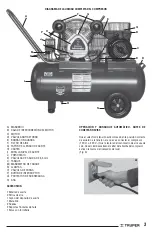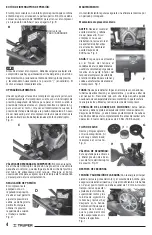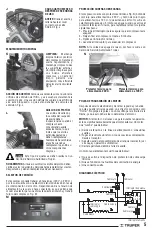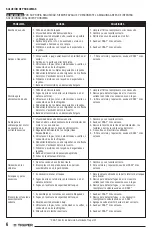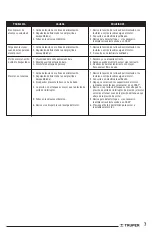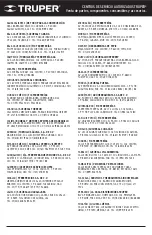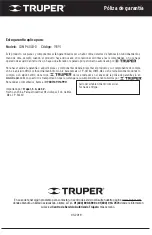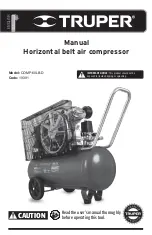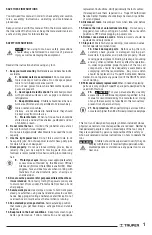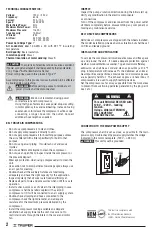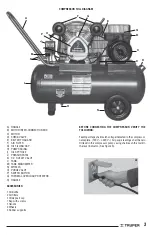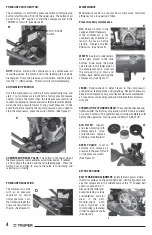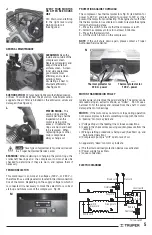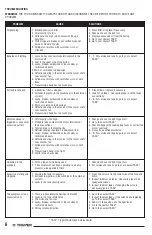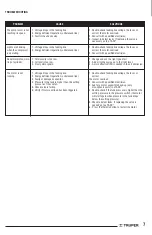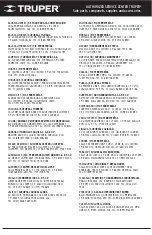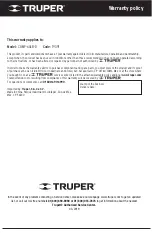
7
CAUSE
1. Voltage drops in the feeding line.
2. Energy deficient regulation (unbalanced line).
3. Fault in the check valve.
1. Voltage drops in the feeding line.
2. Energy deficient regulation (unbalanced line).
1. Oil viscosity is too low.
2. Oil level is too low.
3. Dusty atmosphere.
1. Voltage drops in the feeding line.
2. Energy deficient regulation (unbalanced line).
3. Faulty or damaged capacitor.
4. Pressure in the tank is higher than the cutting
pressure of the switch.
5. Check valve is failing
6. Verify if motor overload has been triggered.
SOLUTIONS
1. Double-check feeding line voltage, the fuses or
correct the motor overload.
2. Consult with a qualified electrician.
3. Inspect to detect leaks. If replacing the valve is
necessary go to a TASC*.
1. Double-check feeding line voltage, the fuses or
correct the motor overload.
2. Consult with a qualified electrician.
1. Change and use the right type of oil.
2. Add oil to the casing up to the right level.
3. A more effective filter is needed in the air admission.
1. Double-check feeding line voltage, the fuses or
correct
the motor overload.
2. Consult with a qualified electrician.
3. Ask for a motor capacitor check-up (only
monophasic units) in a TASC*
4. Double-check if the tank pressure is higher than the
cutting pressure in the pressure switch (the motor
will start again when pressure in the tank drops
below the cutting pressure).
5. Check to detect leaks. If replacing the valve is
needed go to a TASC*
6. Press the thermic button to restart the motor.
PROBLEM
The compressor is not
reaching its speed.
Lights are blinking
when the compressor
is operating.
Abnormal piston, worn
ring or cylinder.
The motor is not
running.
TROUBLESHOOTING

